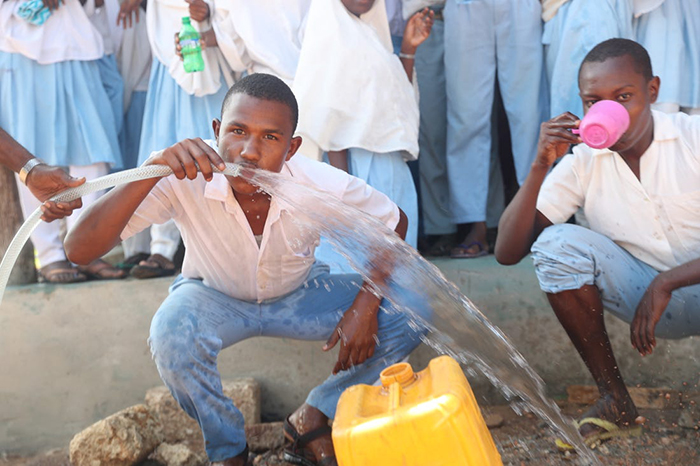- About
- Topics
- Picks
- Audio
- Story
- In-Depth
- Opinion
- News
- Donate
-
Signup for our newsletterOur Editors' Best Picks.Send
Read, Debate: Engage.
| October 21, 2022 | |
|---|---|
| topic: | Energy |
| tags: | #Yemen, #energy crisis, #humanitarian crisis, #oil and gas industry, #Saudi Arabia |
| located: | Yemen |
| by: | Mubarak Al-Yousifi |
In early September 2022, areas under the control of Houthi rebels (Ansar Allah), including the capital Sana'a, faced a severe energy crisis as oil stations in Sana'a were abruptly closed due to the Saudi Coalition's blockade of Hodeidah Port.
Since war broke out in 2015 and fuel production in the country stopped, Yemen has been relying exclusively on imported oil. The authorities in Sana’a used to distribute the imported oil to local stations which would then sell it to Yemeni citizens.
On 3 September, the Yemen Petroleum Company in Sana'a issued an official statement saying it will activate an emergency plan in response to the shortage of fuels resulting from the continued blockade of ships near the Saudi coast.
According to Essam Al- Motwake, spokesperson of the Yemen Petroleum Company, the holding of 16 fuel ships for more than 17 days by the Saudis cost the Company more than USD $11 million. The internationally-recognised Yemeni government denied Houthi claims and accused the rebels of exploiting the crisis to sell fuel in a parallel (black) market.
The Saudi coalition finally allowed the passage of eight oil tankers into Hodeidah port but seized the rest.
The incident exacerbated the mounting humanitarian crisis in Yemen by causing the prices of electricity, transportation and foodstuff to soar and bringing economic activity to a halt.
The crisis also affected the country's struggling health sector: some private medical centres have suspended their operations due to the shortage of oil, depriving many Yemeni patients from access to medical treatment.
The majority of Yemen’s supply of electric energy is derived from fuels and gas, including 684 megawatts from diesel, 495 megawatts from steam power and 340 megawatts from natural gas, according to reports from the Ministry of electricity and energy.
The ministry was slated to make improvements in the gas-operated plant in the Marib governorate - which supplied roughly 40 percent of the country's energy needs - and increase its generating capacity to 400 megawatts starting 2012. But the project failed following the eruption of the revolution in 2011.
Now, as oil and gas production in Yemen screeched into a halt with the onset of the war, the Marib plant is out of commission.
As a result, more than half of Yemeni citizens have no access to electricity, particularly in rural areas of the country. The majority of those are farm workers who depend on electricity to irrigate their fields. Many of them used to rely on diesel to run their water pumps, but the price for 20 liters of diesel had gone up from USD $4 in 2015 to $35.
Mohammed Al-Shoaibi, head of the Renewable Energy Authority at the Ministry of Electricity and Energy in Aden, told FairPlanet that the agricultural sector is one of the most affected by Yemen's ongoing oil crisis, and has suffered significant material losses.
"Many farmers have used solar energy systems to produce energy, and the generated energy in Yemen's agricultural sector was 300 MW in 2016," he said.
Saleh Al-Matari, a Yemeni farmer, told FairPlanet that the capacity of solar energy systems is limited compared to electric ones, which leads to reduced productivity of the country's agricultural sector.
Since 2015, several local and international organisations have attempted to tackle Yemen's energy crisis.
One such effort was made by the World Bank, by implementing an emergency project in Yemen to provide solar energy systems for schools and health centres, particularly in remote areas. The project cost was estimated at USD $150 million, and was split into two phases.
Civil society has also been pushing for a solution, calling on both parties of the conflict to allow the flow and distribution of energy sources.
Many citizens also took to streets in different Houthi-held areas and angrily demanded, especially from the Saudi coalition, to implement the elements of the agreed UN-brokered truce.
The Yemeni parliament and Yemen Petroleum Company in Sana’a also called on the UN to pressure the Saudi Coalition to allow oil tankers to enter Hodeidah port and mitigate the suffering of Yemenis.
Image by Water Alternatives.
By copying the embed code below, you agree to adhere to our republishing guidelines.
